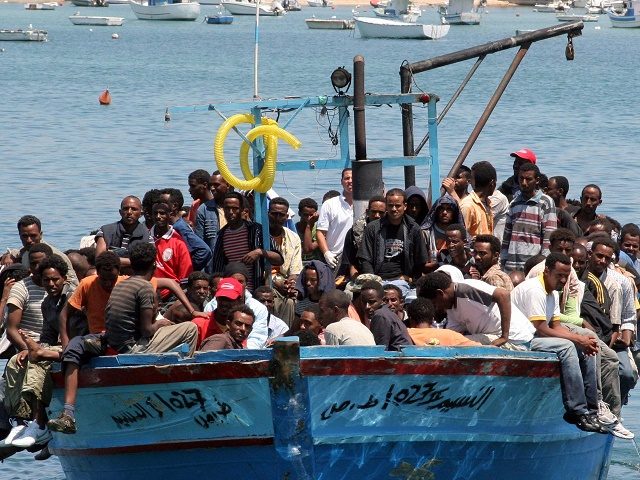Frontex, the European Border and Coast Guard Agency, has admitted that search-and-rescue (SAR) missions in the Mediterranean Sea are strengthening criminal migrant smugglers’ business model and increasing total drowning deaths.
The Frontex Risk Analysis for 2017 admits that:
Both border surveillance and SAR missions close to, or within, the 12-mile territorial waters of Libya have unintended consequences.
Namely, they influence smugglers’ planning and act as a pull … Dangerous crossings on unseaworthy and overloaded vessels were organised with the main purpose of being detected by EUNAVFOR Med/Frontex and NGO vessels.
Apparently, all parties involved in SAR operations in the Central Mediterranean unintentionally help criminals achieve their objectives at minimum cost, strengthen their business model by increasing the chances of success.
Migrants and refugees – encouraged by the stories of those who had successfully made it in the past – attempt the dangerous crossing since they are aware of and rely on humanitarian assistance to reach the EU.
The end result is that crossings to Italy reached an all-time high of 182,000 in 2016, with an attendant rise in drowning deaths: 5,083, as compared with 3,777 in 2015 and 3,279 in 2014.
Frontex acknowledges “the scope of the problem is alarming”, with SAR missions forming an essential component of the people-smugglers’ operations and providing them with a “distinct tactical advantage”.
Even so, the EU agency concludes that “SAR efforts will continue as long as the migratory crisis persists in the Central Mediterranean not only because they relate to international legal obligations, but also because they stem from European values.”
Australia drew the opposite conclusion from its own migrant crisis, which also saw people-smugglers sending unseaworthy vessels towards their destination with inadequate fuel, radioing ahead for them to be picked up and escorted to their target country by the authorities.
These crossings reached a high of 403 boats and 25,173 migrants in 2012-13 before former prime minister Tony Abbott launched Operation Sovereign Borders. This military-led mission sees smuggler boats either turned back to their port of origin or escorted to a third country, with migrants’ asylum applications processed off-shore. Genuine refugees are homed outside Australia at the commonwealth’s expense.
The Australian approach is unlike the European policy in that it is designed to reduce drowning deaths by strongly disincentivising illegal sea-crossings. It appears to have been successful, with the government recently reporting that it has been 900 days since the last smuggler boat reached Australia.
Tony Abbott has advised EU leaders that “If you want to stop the deaths [and] you want to stop the drownings, you have got to stop the boats”.
Speaking in Prague in late 2016, the London-born conservative said “Effective border protection is not for the squeamish, but it is absolutely necessary to save lives and to preserve nations. The truly compassionate thing to do is: stop the boats and stop the deaths.”
Abbott has also warned that “Many of those taking to boats across the Mediterranean or clamouring at Europe’s gates look set to join an angry underclass”, and the migrant crisis could, therefore, represent an “existential threat” to European societies.
“Too many are coming not with gratitude but with grievance, and with the insistence that Europe should make way for them. Some of Turkey’s leaders have even urged Muslims to take back parts of Europe, and among the would-be migrants are soldiers of the caliphate bent on mayhem.”

COMMENTS
Please let us know if you're having issues with commenting.